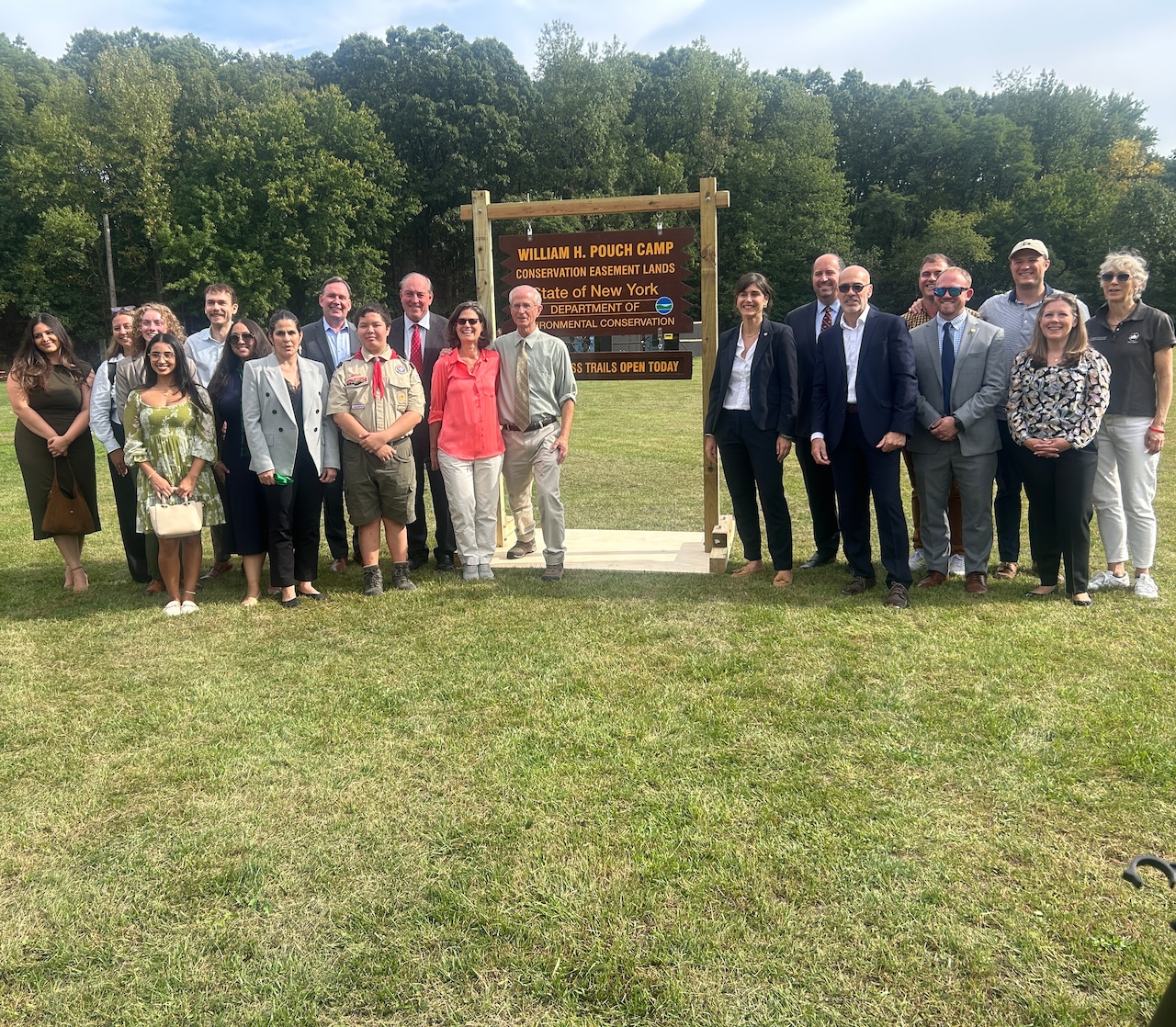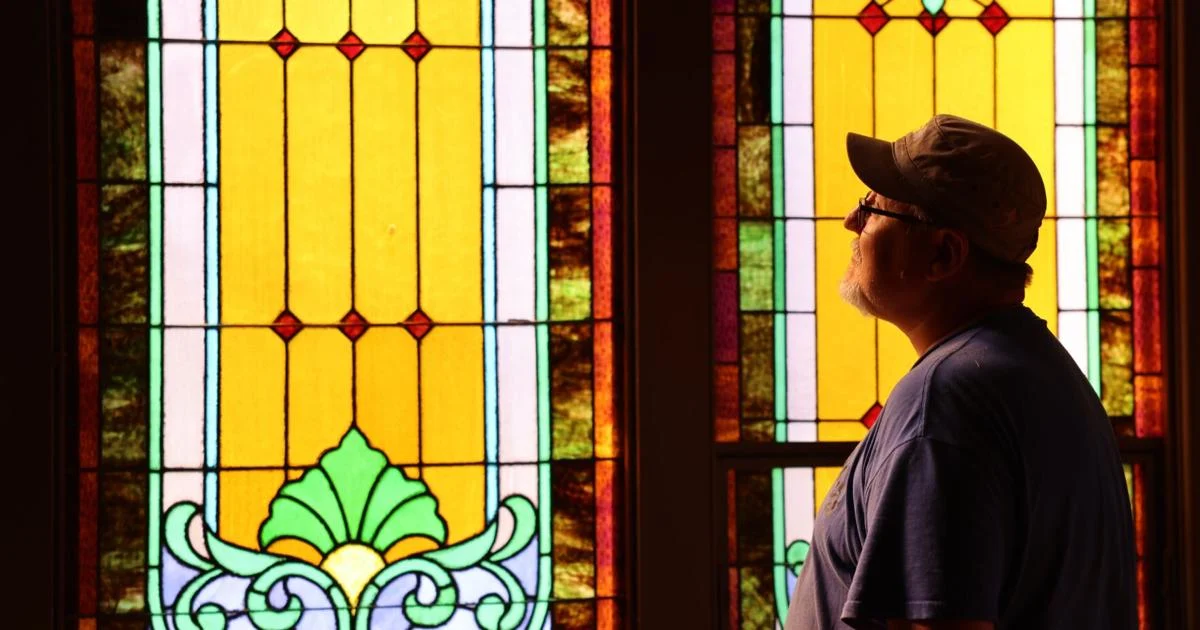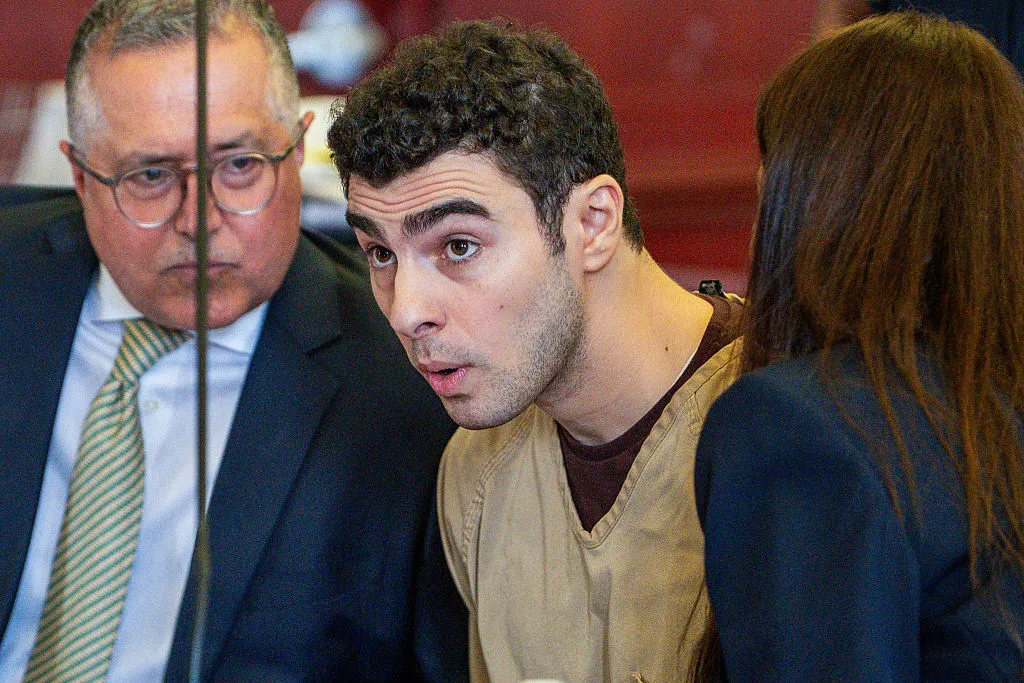
STATEN ISLAND, N.Y. — The permanent protection of Staten Island’s William H. Pouch Scout Camp was celebrated Monday, marking a major step in conserving 121 acres of green space inside the borough’s 2,800-acre Greenbelt.
Community members and leaders from Scouting America, Greater New York Councils, joined officials from the city Parks Department, the New York State Department of Environmental Conservation, and the Trust for Public Land to celebrate the camp’s preservation.
Attendees included Staten Island Borough President Vito Fossella; NYC Parks Borough Commissioner Joseph Homsey; environmental advocate Ed Burke; Trust for Public Land New York State Director Tamar Renaud; Saroya Friedman-Gonzalez, CEO of Greater New York Councils; and Councilmember David Carr.
The protection of William H. Pouch Scout Camp safeguards a large swath of the Island’s Greenbelt, providing a habitat for wildlife, outdoor education, and recreational opportunities for scouts and the public. Attendees of the event said the effort, years in the making, ensures that the natural resources and scenic landscapes of the area will remain accessible for generations to come.
William H. Pouch Scout Camp holds a unique significance in the landscape of urban green spaces due to its rich history and its role in fostering youth development and environmental stewardship. Unlike many other green spaces, the camp is not only a recreational area, but also a living classroom where individuals learn about conservation, ecology, and the importance of preserving natural habitats.
The preservation effort unfolded over three phases spanning more than a decade. New York City invested $5 million in 2012 to protect the initial 43.3 acres. The following year, New York state contributed $6 million from its Environmental Protection Fund to conserve an additional 52.6 acres. The final phase, completed this year, secured the remaining 25.6 acres with $9.62 million from New York City Department of Parks and Recreation capital funds.
Homsey called the preservation important both professionally and personally. A former scout who worked over five years as an assistant ranger at Pouch Camp, Homsey said, “I plan on working with our partners at Scouts and DEC to program it, and expand people’s horizons to what’s here as well.” His son is now a scout as well, Homsey noted.
Environmental advocate Ed Burke said one of the biggest challenges in the project was time, but he credited former Staten Island Borough President James Oddo for helping make the case for preservation by highlighting the site’s value for youth citywide.
A former Cub Scout himself, Burke said his own passion for nature and its importance to young people kept him committed to seeing the project through. “If we can offer young people today the opportunity to come to Pouch Camp, to have such enriching activities here, but also connect with nature, it’s an important thing to me,” he said. He noted that these experiences in nature provide lasting benefits beyond recreation, helping youth grow and connect with their community.
Spending time outdoors at William H. Pouch Scout Camp offers physical, mental, and social benefits, especially for youth, said Parks officials. Being in nature can reduce stress, improve well-being and foster connections with others. These experiences help develop skills, confidence and an appreciation for the natural world that carry into school, work and civic life, they said.
Renaud emphasized the value of the camp for youth and conservation. “It’s so important and I think what matters the most is connecting the kids to nature, that helps their own well-being,” she said. “They’re the ones who become the advocates of the future for the preservation of land.”
Among those in attendance were Keith Christensen, Staten Island Council President of the Scouts, and his son, Haakon Christensen, a Star Scout with Troop 37. Reflecting on the preservation, Keith Christensen said he felt relieved. “We come here often, so if we were to lose this, we would lose one of our recreational spaces, not only as scouts but as a family,” he said.
Protecting the William H. Pouch Scout Camp honors its legacy while supporting youth mental health, outdoor education and environmental stewardship. “It’s a living classroom,” said Saroya Friedman-Gonzalez, CEO of Greater New York Councils. “Our mission is simple. It’s to prepare young people to make ethical and moral choices over their lifetime, and spaces like these are essential to that mission.”



